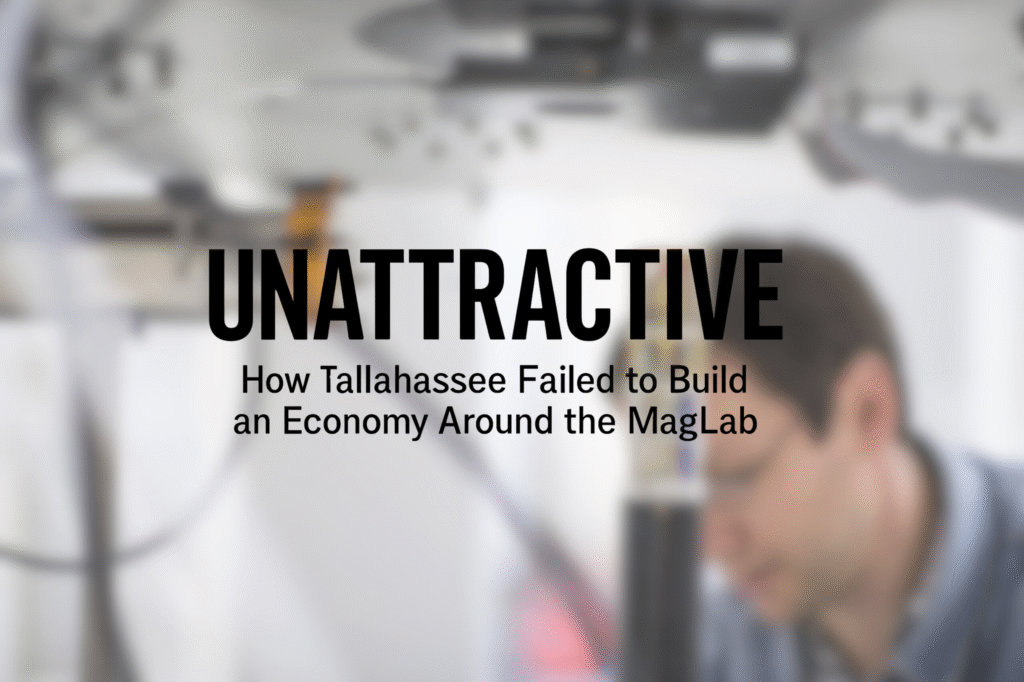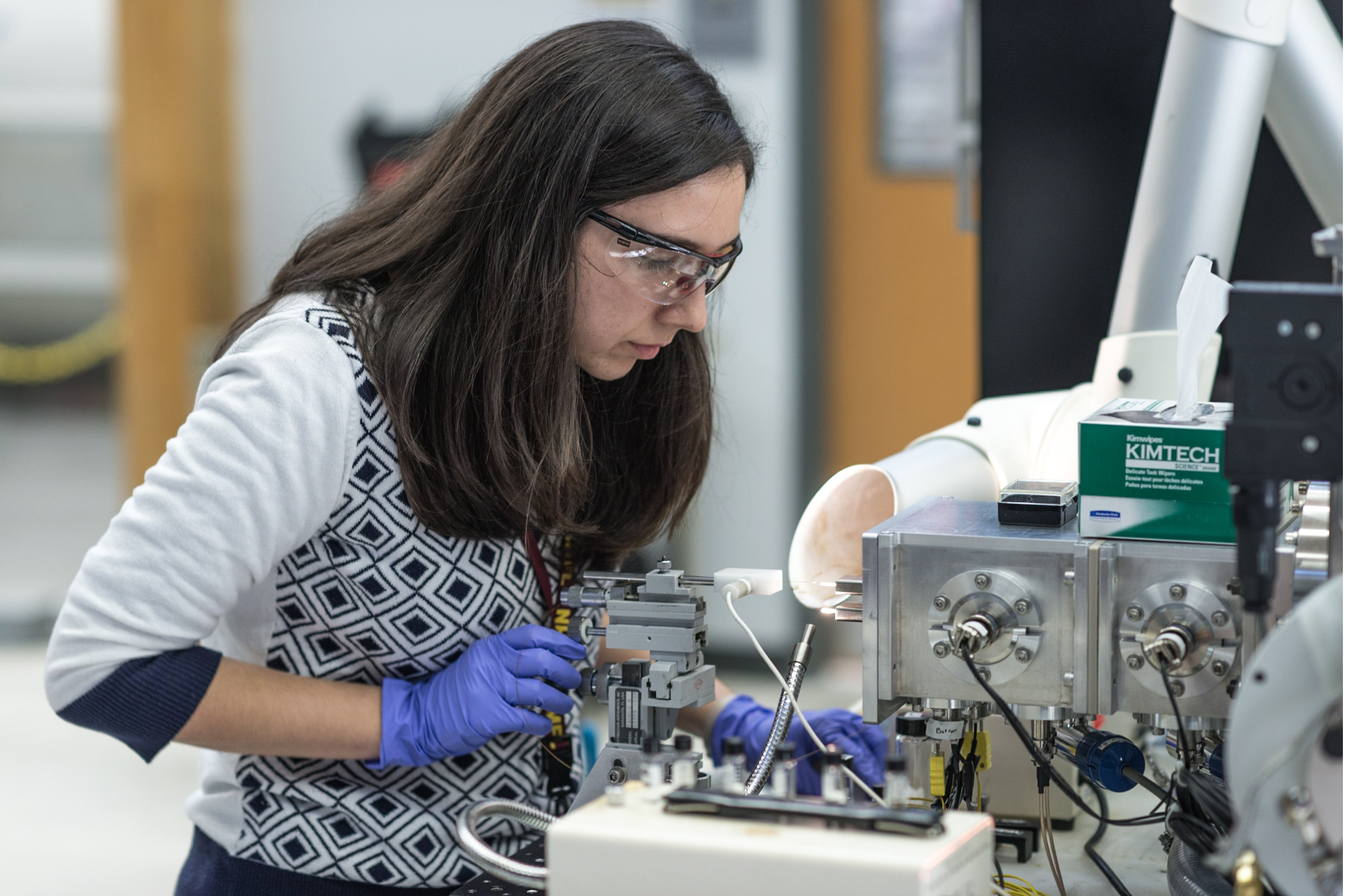Part 4 of a series
Florida State University secured the bid and has drawn world-class researchers to the MagLab. It has kept the MagLab operational, but without the lavish upgrades seen elsewhere on campus (Doak Campbell Stadium, student union, etc.). The successes at the MagLab have primarily been the product of the scientists and researchers doing the actual work.
And when it comes to translating that scientific prestige into broader economic benefits for Tallahassee, FSU’s role becomes more complex and, at times, restrictive.

1. The self-evaluation problem
FSU regularly publishes economic impact reports estimating the MagLab’s local annual output. However, these reports are produced by FSU’s own research center (CEFA) and rely heavily on FSU-generated spending data, rather than independently audited outcomes or private-sector-led growth.
This raises concerns about potential bias and the absence of independent validation.
2. A culture of insularity
While many universities collaborate with local stakeholders, FSU appears to operate with limited outward engagement. Although Innovation Park – over which the university now has much more control — hosts some private sector entities, it remains predominantly academic and research-focused, rather than a thriving hub of public-private innovation. And there is no way around the fact that the park’s location – save for its proximity to the airport – is not desirable.
3. Gatekeeping vs. partnering
Some business leaders feel FSU treats the MagLab as its own asset—rather than a community resource. Further, FSU does not give the MagLab its own voice to be a community resource because all the business-related deals must go through FSU-sponsored research.
These perceptions may ultimately undermine trust and deter entrepreneurial or investment opportunities.
4. No clear economic vision
FSU lacks a visible, comprehensive plan to translate the MagLab’s scientific strengths into a citywide economic strategy. Unlike institutions that launch innovation districts, venture funds, or commercialization pipelines, no comparable effort is evident here.
What Could Change
This isn’t a critique of FSU’s scientific excellence but a call for strategic recalibration. FSU should:
- Invite independent review of its economic impact claims.
- Formulate a public-private economic growth strategy centered around the MagLab.
On this point, there are numerous examples of institutions that have taken the lead. North Carolina State University’s Centennial Campus in Raleigh is a 1,300-acre, university-planned public-private research community that intentionally recruited more than 75 corporate, government, and nonprofit partners to co-locate with academic departments and research centers — creating thousands of private-sector jobs and driving Raleigh’s transformation into a tech hub. Similarly, Arizona State University’s SkySong Innovation Center redeveloped a shuttered mall into a thriving mixed-use campus housing over 80 companies, blending academic research with industry to generate sustained regional investment and employment. These projects weren’t incidental spinoffs — they were university-designed strategies to harness institutional assets for local economic growth. - Expand partnerships with private-sector firms, accelerators, and developers.
- Reposition itself not only as a scientific steward, but as a partner in regional prosperity.
If the MagLab is truly a national asset, its benefits should reach beyond campus boundaries.
And then the burden shifts to other stakeholders:
Local government: The lack of a community economic development vision is apparent to anyone paying attention. That has to change. Further, businesses that visit our market lament the bulky, clumsy structure of the Office of Economic Vitality with its unclear lines of decision-making and lack of dexterity. That has to change, too.
State government: Understandably, Tallahassee is viewed as a business-unfriendly, anti-growth, hyper-political town. But the potential of a MagLab-driven economy is too great to let those realities overcome it.
Private sector: The Chamber has simply not been effective in convening the public sector stakeholders to solve this problem. Perhaps a different group of strong business leaders is up to the challenge.
Coming next: Is it too late? (Spoiler alert: No)
